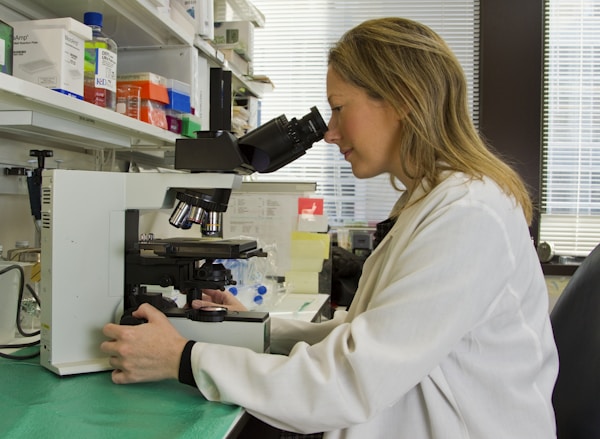Are you looking for a career that fits you perfectly? You may be surprised to learn that the answer might be encoded in your DNA. Recent research has shown that our genetic makeup can play a significant role in determining what kind of job we should pursue. Keep reading to discover how your DNA can influence your career prospects.
Exploring the Link Between Genetics and Occupation

Exploring the link between genetics and occupation choice is an important area of study that can help to better understand why people choose certain career paths. It has been suggested that a person’s genetic makeup may play a role in their interests and professional choices, along with other factors like upbringing and education levels. Recent research into this topic has explored how personality traits such as creativity, risk-taking ability, and problem-solving skills can be linked to an individual’s genes. For example, some studies have found that those who possess certain variants of the DRD2 gene are more likely to pursue creative occupations than those without them.
In addition to these personality traits, researchers have also looked at whether or not genetic predispositions might influence occupational preferences related to physical activities such as sports or manual labor. It appears that having specific alleles associated with physical fitness (such as ACTN3) could potentially increase the likelihood of selecting a career path in athletics or industrial work over less active professions. This could provide valuable insight into how genes might shape an individual’s vocational decisions throughout their lifetime, though it should be noted that many other factors will ultimately come into play when making job selections.
Using DNA for Career Exploration

DNA tests have become increasingly popular in recent years, and many are using them to gain insight into their ancestry. However, these tests can also offer valuable information about one’s potential career prospects. By analyzing a person’s genome, the results of a DNA test can provide important insights into a person’s innate abilities, interests, and preferences—all of which can be used to better inform decisions about future study or job opportunities.
One advantage of utilizing a DNA test for career exploration is that it may help people identify jobs that best fit with their natural strengths and weaknesses. For example, someone who has strong communication skills but lacks problem-solving aptitude might be more suited for an administrative or customer service position rather than engineering or accounting positions. Similarly, those with strong analytical skills may find success in data analysis roles while those who are naturally creative may thrive in marketing roles. The use of genetic testing allows people to learn more about themselves on a deeper level so they can make informed choices when selecting careers based on their own personal traits and talents rather than relying solely on academic performance or external opinions from family members or friends.
Additionally, understanding one’s genetics through DNA testing could provide useful insights into how certain environmental factors may impact job performance as well as the types of environments where an individual would feel most comfortable working within. With this knowledge at hand, individuals will be better equipped to plan out the necessary steps needed in order to succeed professionally by creating tailored approaches specific to their unique set of attributes and capabilities instead of merely following generic advice that does not take each person’s individual needs into consideration adequately enough for long-term success over time periods such as decades versus months/years alone.
DNA traits are associated with the genetic code that makes up an individual’s unique characteristics. Whether you’re considering attending a culinary school or dental assistant school, potential students should consider how their DNA might influence their prospects in this field. Genetics play a role in whether or not someone will be successful in any given profession, so understanding your own genetic makeup is an essential step when selecting a career path.
Overall, it’s clear that DNA has a significant role to play in career aspirations and success. Genes can provide a unique advantage and can shape interests, skills, and even behavior.